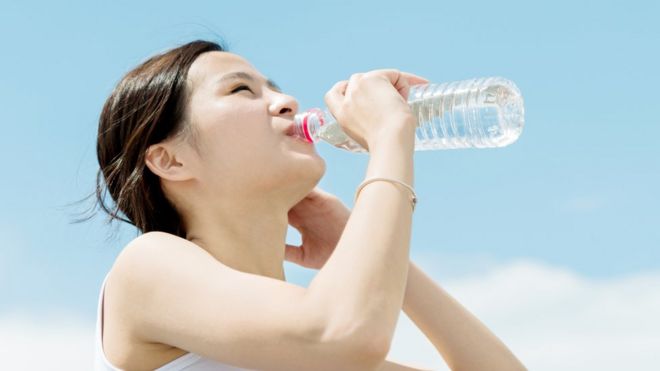Fake cancer causes belief 'rife', research suggests

Drinking from plastic bottles and using microwave ovens are some of the fake causes of cancer people believe, research suggests.
In a survey of 1,330 people in England, published in the European Journal of Cancer, most people correctly said smoking was a cause.
But increasing numbers are getting the risk factors wrong.
Smoking, being overweight and overexposure to UV radiation are the biggest preventable causes of cancer.
Cancer Research UK said about four in 10 cases of cancer could be prevented through lifestyle changes and it was important to have the right information to "separate the wheat from the chaff".
Researchers at University College London and the University of Leeds carried out the survey and found that more than 40% wrongly thought that stress and food additives caused cancer.
One-third incorrectly believed that electromagnetic frequencies (35%) and eating genetically modified (GM) food (34%) were risk factors, while 19% thought microwave ovens and 15% said drinking from plastic bottles caused cancer, despite a lack of good scientific evidence.
'Worrying'
Smoking was, correctly, selected by 88% of those surveyed, 80% picked passive smoking and 60% said sunburn were causes of cancer - all proven.
Believing in fake causes of cancer did not mean people were more likely to have risky lifestyle habits, but those who were better informed about the proven causes of cancer were more likely not to smoke, the study found.
They were also more likely to eat more fruit and vegetables.
Dr Samuel Smith, from the University of Leeds, said: "It's worrying to see so many people endorse risk factors for which there is no convincing evidence.
"Compared to past research, it appears the number of people believing in unproven causes of cancer has increased since the start of the century, which could be a result of changes to how we access news and information through the internet and social media."
He added: "It's vital to improve public education about the causes of cancer if we want to help people make informed decisions about their lives and ensure they aren't worrying unnecessarily."
Clare Hyde, from Cancer Research UK, said: "There is no guarantee against getting cancer - but by knowing the biggest risk factors we can stack the odds in our favour to help reduce our individual risk of the disease, rather than wasting time worrying about fake news."
Source: http://www.bbc.com/news/health-43895514


No comments